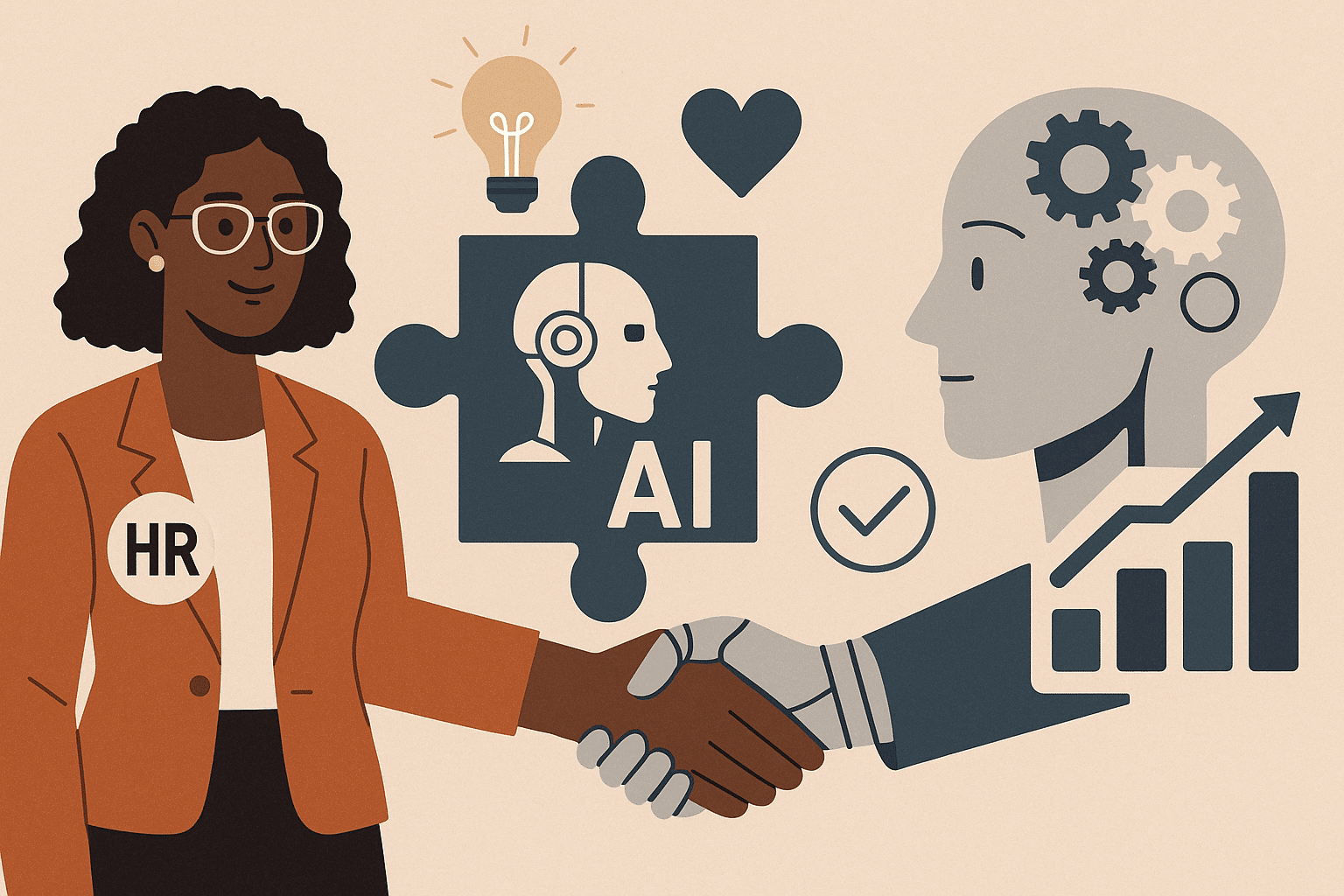
Artificial Intelligence (AI) no longer merely optimizes processes. It is reshaping the professional landscape in depth, giving rise to new jobs that few companies had imagined just five years ago. Faced with this rapid transformation, HR teams and managers have a strategic role to play: anticipate, train, and support.
🔍 New jobs… truly new?
Yes, and it’s not just a passing trend. While some jobs such as Data Analyst or Machine Learning Engineer are now well established, others are emerging in response to more subtle challenges, such as:
- AI Ethicist: to ensure that algorithmic systems respect ethical principles.
- Data Curator: to guarantee the quality, diversity, and representativeness of datasets.
- AI Coach: to supervise the behavior of an AI agent in a real-world environment.
- Prompt Engineer: to formulate the right instructions for generative AI (chatbots, images, text…).
- AI Governance Manager: to set up charters and internal processes related to AI.
According to the Future of Jobs Report 2023 from the World Economic Forum, 44% of employees’ skills will need to evolve by 2027. AI is at the heart of this transformation.
👉 Full report here: https://www.weforum.org/publications/the-future-of-jobs-report-2023/
🧩 5 levers to prepare teams
1. Make monitoring a collective reflex
Set up an internal monitoring unit or integrate reference newsletters (such as OECD AI, MIT Technology Review, or AI News) so employees can follow the evolution of AI-related jobs.
2. Develop hybrid skills
Most new AI jobs combine technical + human skills: for example, an AI Coach must understand cognitive biases while also knowing how to interact with multidisciplinary teams.
💡 Recommended: cross-disciplinary training in ethics, psychology, data analysis, UX, intercultural communication, etc.
3. Set up personalized learning paths
Instead of one-size-fits-all training, build learning paths based on profiles and aspirations. AI itself can be used to provide a skills diagnosis and training recommendations (via tools such as SkillUp, 365Talents, or Pymetrics).
4. Encourage internal experimentation
Create a “sandbox” where employees can test AI tools, participate in pilot projects, or propose AI-related ideas—an excellent way to build familiarity without pressure.
5. Value soft skills complementary to AI
Emerging jobs require reinforced emotional and relational skills: critical thinking, adaptability, complexity management, collaborative leadership…
📌 A study by Dell and the Institute for the Future (IFTF) predicts that 85% of the jobs of 2030 do not yet exist. This is not a reason to wait—it is an invitation to act now.
Source: https://everraimondiconseil.com/tendances-rh/futur-dell-technologies-explore-les-nouvelles-relations-homme-machine-dici-2030.html
🧭 The key role of HR and managers
Preparing teams for these changes is not just a matter of training. It is a cultural transformation:
- HR must ensure that job descriptions, recruitment criteria, and career paths reflect these evolutions.
- Managers must become meaning-makers, able to reassure, engage, and guide change.
🎯 Conclusion
AI is not here to replace all jobs, but to create new ones, at the intersection of the digital and the human. Anticipating these jobs means offering employees a future perspective and giving companies a lasting strategic advantage.


